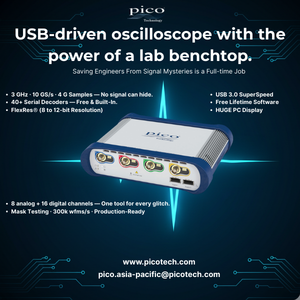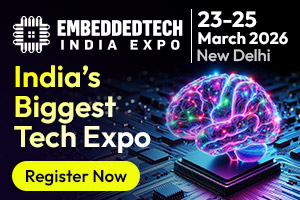Interviewee : Ponni Carlin,Chief Operating Officer of IVP Semi
Question 1: Ma’am, please tell us about your educational background.
My educational background is a bit unconventional. I completed my undergraduate degree in Microbiology with a minor in Psychology. A few years later, I pursued a master’s degree that combined Microbiology and Business. It was during this time that the business side of my education opened my eyes to possibilities beyond the biotech lab. That’s when I started exploring opportunities in other industries—and eventually made the shift to semiconductors.
Question 2: Tell us about your professional journey in the field of Electronics.
I didn’t begin my career in electronics—in fact, I actively avoided engineering, even though my father was in semiconductors. With my background in Microbiology, I started off working in Biofuels and Biotech, spending the first seven years of my career in labs, tackling technical challenges.
While I did well, I found myself naturally drawn to cross-functional projects and looking for ways to improve the status quo. That’s when it hit me—I might not be meant for the lab. I began considering business roles within biotech when my father once again suggested I join him at Tessolve. He had been encouraging me for years, but I was determined to stick with science. It was actually my mom’s gentle push that finally made me take the leap.
Once I joined Tessolve, there was no looking back. The learning curve was steep—especially in the first year—but I loved being in front of customers, solving real-world problems, and working with brilliant engineering teams to develop creative solutions. I had finally found my calling.
Question 3: Were there any hurdles you faced due to being a woman, or in general ?
The semiconductor industry is mature and largely male-dominated, which brings its own set of challenges. I had the advantage of joining a company founded and led by my father, which certainly gave me a layer of support. But even with that, navigating the industry as a woman—particularly in customer-facing roles—had its difficulties.
There were times I had to draw clear professional boundaries that my male colleagues didn’t have to think twice about. It meant I couldn’t always be as casual or relaxed in interactions. But overall, I’ve felt respected and supported. I wouldn’t say I’ve always been at a disadvantage—just that the path looked a little different for me.
Over time, I’ve learned to lean into what makes me different and use it as a strength. Being a woman leader has given me the chance to bring empathy and inclusivity into spaces where those qualities were often missing. And now, I make it a point to mentor and support other women who are entering the industry—because representation and support truly matter.
Question 4: What is the one distinguishing feature of iVP that sets it apart from its competitors?
At iVP, our core differentiator is our focus on the customer. While many companies emphasize product or technology first, we flip that approach. We start by truly understanding what our customer needs, and we build our solutions around that. It’s a mindset that drives everything we do.
We don’t just ask what the customer wants—we ask why they need it, and what success looks like for them. That deeper understanding allows us to build not just great technology, but relevant technology. We believe the future of semiconductors will be defined by agility and empathy, and we’ve built those values into the foundation of iVP’s culture.
Question 5: What excites you most about the future of the Indian semiconductor industry?
The future of the Indian semiconductor industry is happening right now. There’s so much energy and momentum around building solutions for India, not just in India. We already have incredible products coming out of the country—so why shouldn’t the components be made here too?
It’s about more than just manufacturing; it’s about building a full-stack ecosystem—spanning design, testing, packaging, and innovation—that is deeply rooted in the Indian context. With a robust domestic market right in our backyard and increasing government support, India has a unique opportunity to reduce reliance on imports and become truly self-sufficient. The combination of demand, talent, and ambition is all here—we just need to connect the dots and move with speed and intent. I believe India has everything it takes to become not just a contributor, but a cornerstone of the global semiconductor industry.
Question 6: What advice would you give to young and upcoming professionals in the industry?
Listen. We live in a time when everyone wants to prove what they know—but real growth comes from listening. Listen to your customers. Listen to your partners. Listen to your teams. The more you listen, the more insights you’ll gain, and the more inspired and innovative you’ll become. It’s a powerful and underrated skill.
Also, don’t be afraid to say, “I don’t know.” It’s okay to ask questions and admit you’re learning—especially in a space as complex and evolving as semiconductors. The people who grow fastest are the ones who stay curious, humble, and open-minded.
And finally—get out there and meet people. The last few years have been so heavily focused on digital communication and online answers that we’ve started to forget the power of genuine, in-person connection. Don’t sit behind emails and texts. Take the time to build real relationships—walk factory floors, visit partners, attend meetups, talk face-to-face. That’s where trust is built and ideas are sparked. Authenticity and presence will take you further than any algorithm.











